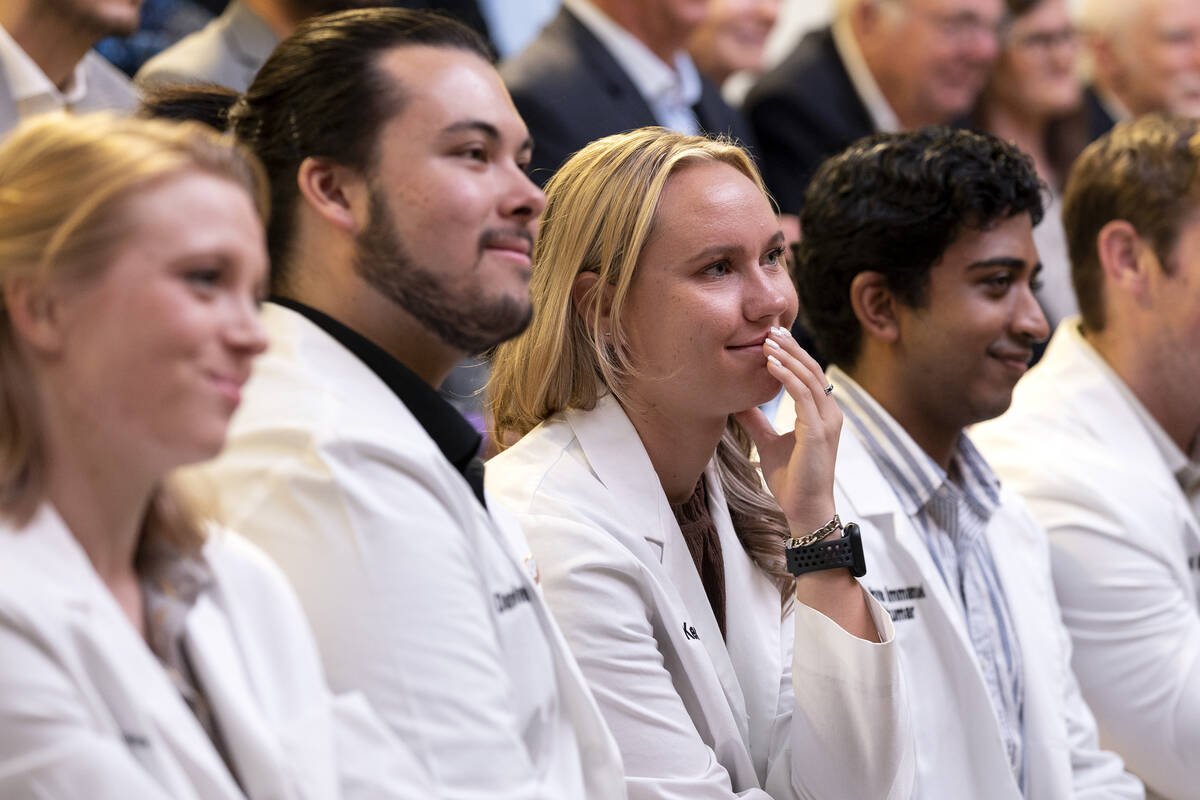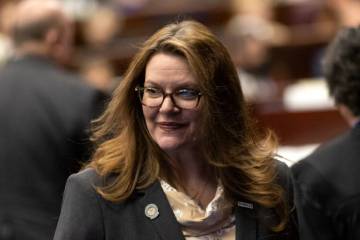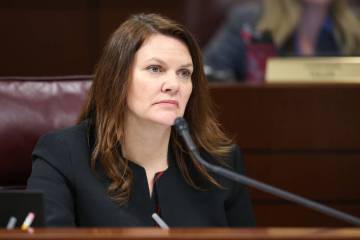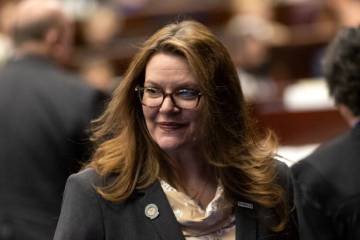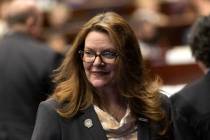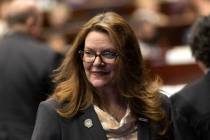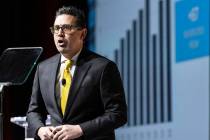UNR, UNLV medical school deans urge lawmakers to fund residency slots
CARSON CITY — Nevada’s physician shortage could worsen in coming years if funding isn’t increased for certain specialty programs, deans of the state’s medical schools told lawmakers Thursday.
Deans from the medical schools at the University of Nevada, Reno and the University of Nevada Las Vegas warned senators on the Health and Human Services Committee that without more specialty residency positions, the state won’t be able to attract badly needed health care professionals to practice in the state.
“The data are clear. Increasing medical school class size alone will only work if you increase opportunities for those students to train as residents and fellows in graduate medical education programs,” said UNR medical school dean Dr. Paul Hauptman.
Graduate medical education programs are the next step for doctors graduating from medical school and serve as training in various specialties.
And where newly-graduated physicians choose to complete their graduate medical education matters. Physicians are twice as likely to stay in a state where they’ve completed their graduate program, Hauptman said. In Nevada, 55 percent of physicians who complete their education in Nevada stay in the state after completing the program. That number increases to 77 percent if the physician completes both medical school and graduate medical education in Nevada, the UNR medical school dean said.
Lacking graduate positions
But drawing doctors to complete their graduate medical education in Nevada, where the state ranks 45 out of 50 for physicians per 100,000 residents, has become more difficult as the state’s population has increased but graduate spots have not.
“The expansion of GME is essential, and it’s not likely that we’re going to get much federal support to do that,” said UNLV medical school dean Dr. Marc Kahn. “We need to look out for other sources to increase the number of physicians and the distribution of physicians in our state. Absolutely critical.”
Graduate programs are predominately funded by the U.S. Centers for Medicare and Medicaid. The number of positions they can fund was capped by federal legislation in 1996, supporting just 400 spots in Nevada. The state had just one medical school at the time.
But building new programs, providing upkeep for current ones and ensuring long-term sustainability is expensive, the deans said.
Startup costs for a new program can carry a price tag between $1 million to $2 million. That’s without the annual costs to sustain the program, which can range between $2 million to $3 million, depending on the number of residents and the type of program.
More money needed
When questioned by senators about how much money is needed to start building up the state’s graduate medical education programs, Kahn didn’t hold back.
“How much money do you have?” he asked the committee. “I think that in the short term, Dr. Hauptman and I talked and $50 million is a big number, but it’s going take that to catch up with states of our size.”
Hauptman said a “doubling if not tripling” of funding in the near term, along with a plan for more sustained funding, would be required to sustain the programs and to continue their accreditation.
“We are really concerned that from the standpoint of accreditation, if we can’t show that we have a mature plan that will cover the program for a good five to 10 years, then we may be putting accreditation at risk,” Hauptman said.
And another issue is the “long runway” for those funds to translate to meaningful progress in addressing the state’s health care workforce shortage. Starting a program can take up to three years, and building the number of residents in that program can take years after that.
“It’s 2025 or 2026 before we launch programs, and we’ll see full maturity of those programs in ’28, ’29, ’30,” Hauptman said.
Despite the large expense, the deans said the money would be an investment that could have wide-reaching consequences for the state’s economic future, Kahn said.
“When new businesses come into a state the two things that they look for are education and health care,” Kahn said. “Not only are we expanding the number of physicians but we’re also providing economic stability and diversification for our economy.”
Contact Taylor R. Avery at TAvery@reviewjournal.com. Follow @travery98 on Twitter.



